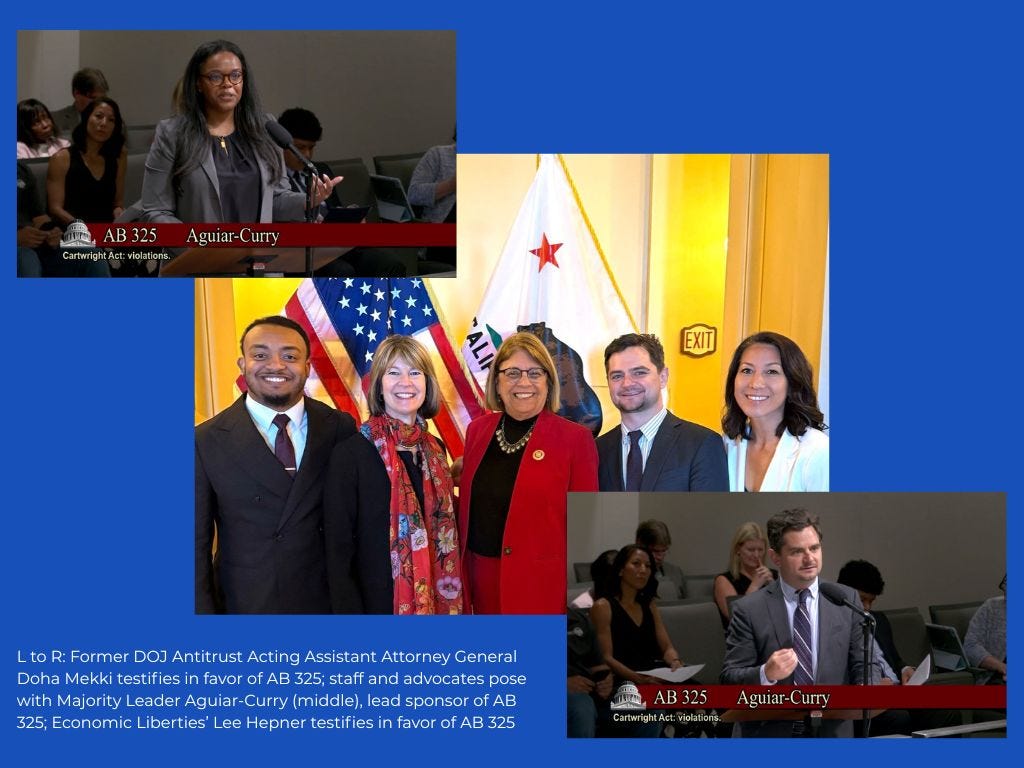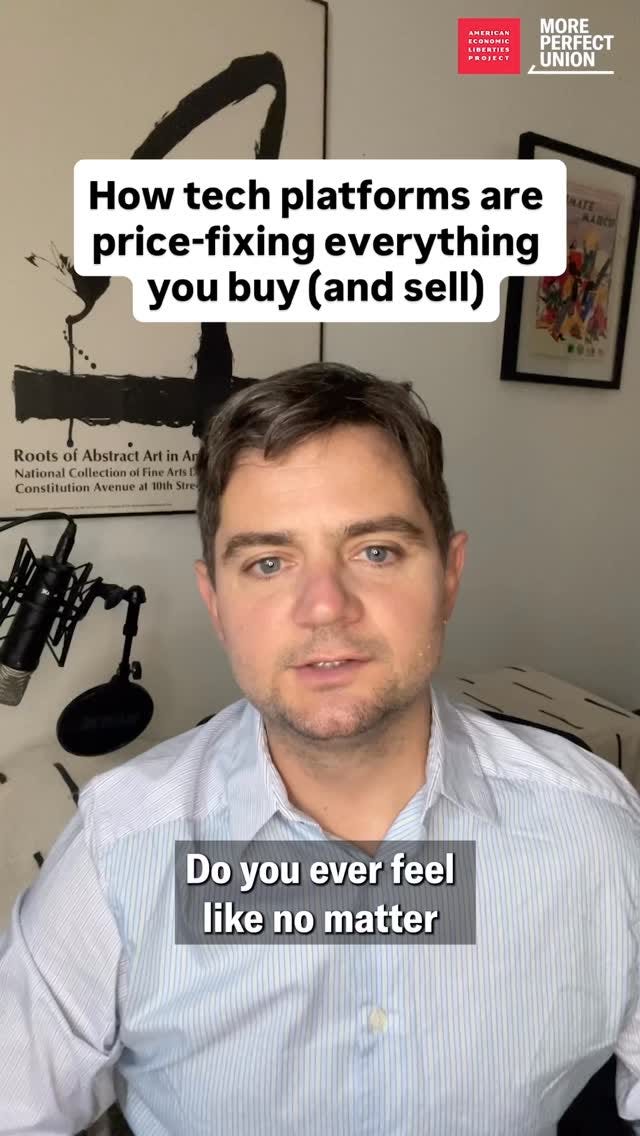CA Just Showed How to Resist an Economy Rigged by Monopolies and Algorithms
Our new video with More Perfect Union.
Last week, California Governor Gavin Newsom signed AB 325—the Preventing Algorithmic Price Fixing Act—a bill that strengthens the state’s antitrust laws to thwart algorithmic price fixing cartels. It is is the first statewide law in the nation to tackle this pervasive anticompetitive practice.
AB 325 caps a two year campaign by Economic Liberties along with a number of partner organizations. After the signing, Senior Legal Counsel Lee Hepner teamed up with More Perfect Union to record a video explaining why the bill matters for shoppers and small businesses.
You can watch the video below—and read on for a full transcript with links.
Do you ever feel like no matter where you shop online, book a place to stay, or look for a new apartment — that you’re getting played?
You’re not imagining it. Things are getting more expensive, and the prices you see aren’t always set by a business independently. Oftentimes, they’re being set by algorithms and tech platforms designed to keep prices high, artificially restrict supply, and keep independent businesses in check.
But this week, California actually took a huge step to ban the algorithmic price-fixing that’s rigging our economy against consumers and locking out independent businesses.
Let me back up.
The term “price-fixing” might conjure images of men in three-piece suits settling on a coordinated commodity price in a smoke-filled back room. But these days, digital platforms allow corporations to do the exact same thing, just behind a wall of code, without ever needing to speak to each other. These “revenue management systems” or “smart-pricing” tools allow platforms like Amazon or RealPage to control what businesses charge or what your landlord charges you in rent— and to punish anyone who dares to try and sell at a fair or competitive price. If you want to sell a product on one of these major platforms, you have to play their game — or risk losing access to critical business services, from market research to one-click purchase options to visibility in search results.
In the rental housing industry alone, an economic analysis by the Biden Administration found that renters paid an estimated $3.8 billion more per year in rent due to restrictive pricing algorithms. And left unchecked things could get worse — a McKinsey study estimated that corporations could juice consumers for an additional $4.4 trillion every year with AI based pricing tools.
Price fixing has always been illegal. But in recent decades, it’s become more difficult to enforce against digital price fixing. Most people don’t enter into illegal agreements in public, and opaque algorithms further obscure evidence of that agreement.
That’s why in California, we fought so hard for AB 325 — the Preventing Algorithmic Price Fixing Act.
The Governor just signed it, making California the first state in the nation to ban coercive price fixing algorithms that are making our entire economy more expensive and less fair.
It updates California’s more than century-old antitrust law, to make clear that using algorithms to coerce or restrict the ability of independent businesses to set their own prices competitors’ ability to set prices through algorithms or platform rules is in fact illegal price fixing. This law gives enforcers new tools to take on digital cartels and restore real competition — so that prices reflect the value to you, the consumer, not what benefits the platform itself.
And it’s not the only good news to come out of Sacramento this week. California also finalized a law to protect you from getting swindled at the car dealership with fake add-ons and shady tactics. And as the Trump administration continues to gut and destroy the Consumer Financial Protection Bureau, California is beefing up its own financial watchdog, allowing it to enforce against bad actors without relying on federal cooperation.
California just proved that we don’t have to accept an economy rigged by monopolies and algorithms. We can write rules and pass laws that put people — not platforms — in charge.
And if one state can do it, others can do it too.



